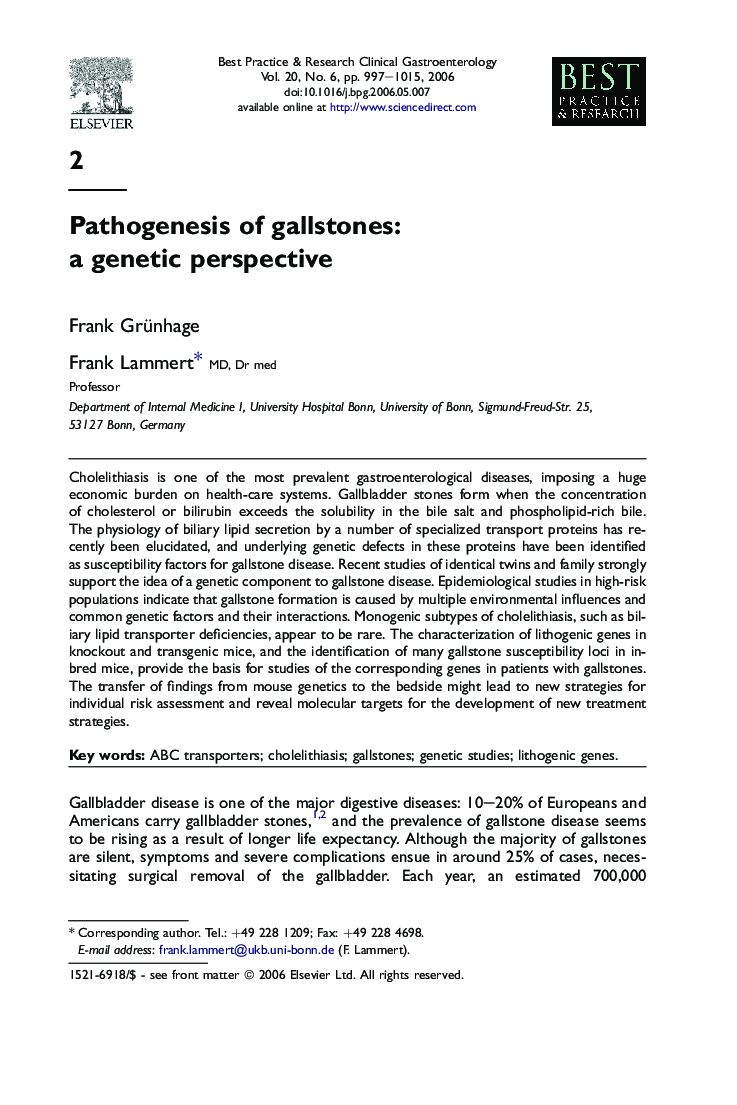| Article ID | Journal | Published Year | Pages | File Type |
|---|---|---|---|---|
| 3254839 | Best Practice & Research Clinical Gastroenterology | 2006 | 19 Pages |
Cholelithiasis is one of the most prevalent gastroenterological diseases, imposing a huge economic burden on health-care systems. Gallbladder stones form when the concentration of cholesterol or bilirubin exceeds the solubility in the bile salt and phospholipid-rich bile. The physiology of biliary lipid secretion by a number of specialized transport proteins has recently been elucidated, and underlying genetic defects in these proteins have been identified as susceptibility factors for gallstone disease. Recent studies of identical twins and family strongly support the idea of a genetic component to gallstone disease. Epidemiological studies in high-risk populations indicate that gallstone formation is caused by multiple environmental influences and common genetic factors and their interactions. Monogenic subtypes of cholelithiasis, such as biliary lipid transporter deficiencies, appear to be rare. The characterization of lithogenic genes in knockout and transgenic mice, and the identification of many gallstone susceptibility loci in inbred mice, provide the basis for studies of the corresponding genes in patients with gallstones. The transfer of findings from mouse genetics to the bedside might lead to new strategies for individual risk assessment and reveal molecular targets for the development of new treatment strategies.
